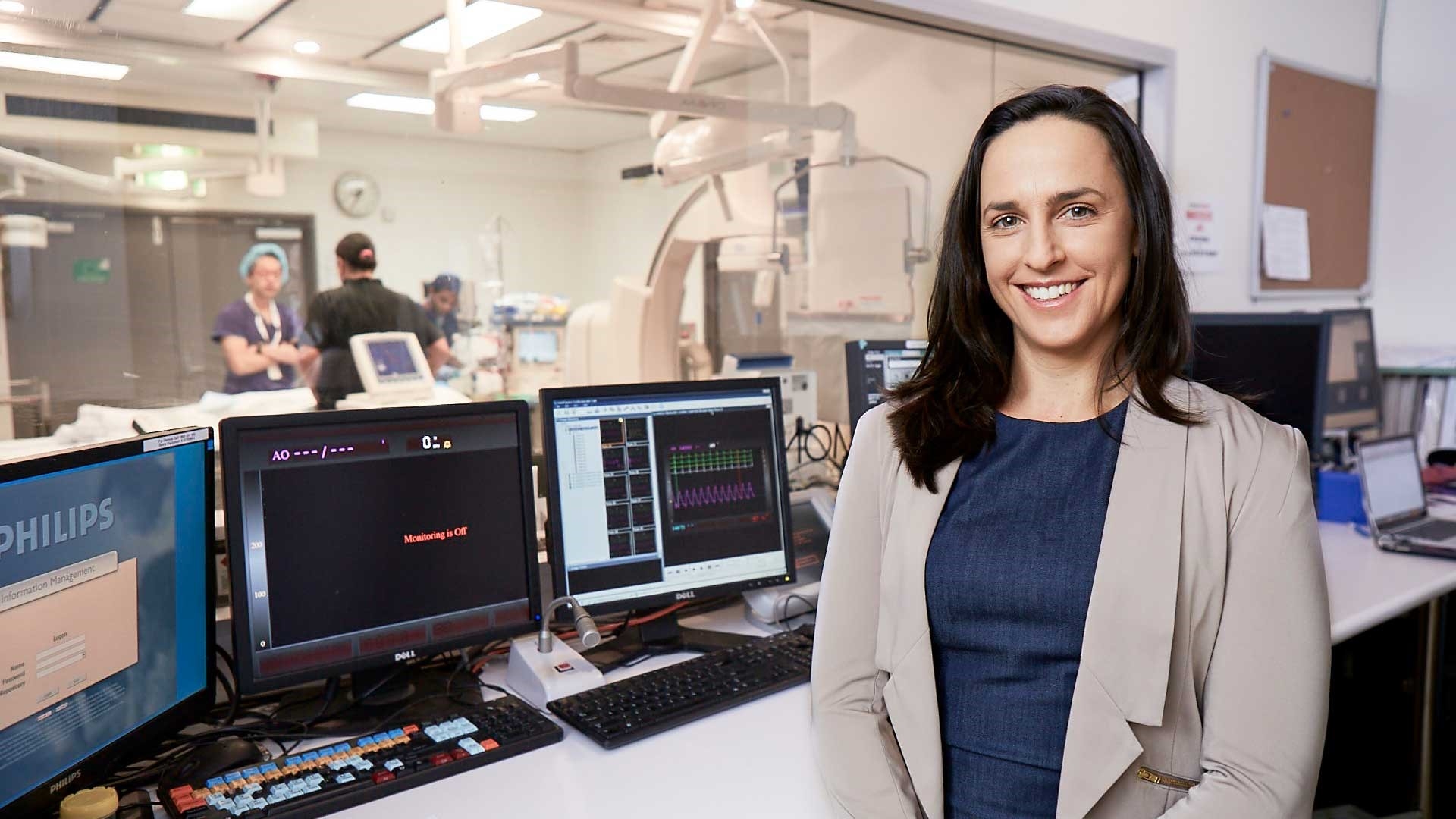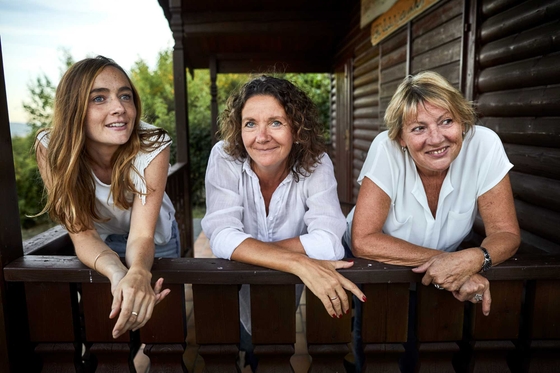
Q&A with Associate Professor Sarah Zaman
Associate Professor Sarah Zaman is a Heart Foundation Future Leader Fellow and Academic Interventional Cardiologist at the University of Sydney and Westmead Hospital. Her research focuses on women and heart disease, preventing sudden cardiac death in people who have survived a heart attack, and preventing heart disease and its complications.
Associate Professor Zaman has been supported by the Heart Foundation through a Postdoctoral Fellowship, Future Leader Fellowship (current), and most recently a Women and Heart Disease Strategic Grant. She co-founded and led the Women in Cardiology committees for Victoria and the Cardiac Society of Australia and New Zealand.
What are you currently researching?
I am excited to be continuing my work on heart disease in women. I am currently setting up an Australian clinical trial to find a better way to predict which women will develop heart disease or stroke. Nearly 3,000 Australian women die from a heart attack each year. Yet the key is to find which women are at high risk, as early as possible, so they can be given support to reduce their risk. This includes support to make healthy lifestyle changes and to take medicines, if needed.
In this trial, we will use a coronary artery calcium score to help identify women earlier in life. We will also identify women with non-traditional risk factors for heart disease. These are women-specific risk factors that are not included in our current way of calculating a person’s risk. These risk factors include premature menopause, and pregnancy-related conditions such as pre-eclampsia, gestational diabetes and high blood pressure in pregnancy. Identifying and managing these risk factors has the potential to prevent long-term risk of heart disease, stroke, and death in younger women.
I am also working on different types of interventions to reduce risk in women who have had a pregnancy-related condition. We are conducting several studies that will assess different ways to lower risk after the baby is born, such as attending a women's heart clinic, mobile health, or digital health technologies.
What difference will your research make to people’s heart health in Australia?
My team hopes to identify and reduce the disparities between women and men who have had a heart attack. Compared with men, we know that women often take longer to present to hospital with warning signs of a heart attack, experience delays in receiving care in hospital (such as coronary angiography and stenting), and can have different underlying causes for their heart attack. One of these causes is spontaneous coronary artery dissection, where a tear forms in a blood vessel in the heart, which can slow or block blood flow to the heart. If we can identify and address these differences between women and men, we can hopefully improve outcomes for women experiencing a heart attack.
Can you tell us about any achievements or discoveries your Heart Foundation funding has led to?
My PhD work on preventing sudden cardiac death has been included in clinical policy and international clinical guidelines, like guidelines for the appropriate use of implantable cardioverter defibrillators after a heart attack. An implantable cardioverter defibrillator is a device that sits under the skin. It can continuously monitor the heart and can correct dangerous abnormal heart rhythms.
Many projects I am working on have the potential to save lives, by changing clinical guidelines, improving cost-effectiveness, and improving outcomes after a heart attack.
What motivated you to do your research?
When I first started my PhD, I was training to be a cardiologist, and I didn't really know what research could lead to. I did it out of intellectual interest and motivation to become a better doctor. As I progressed through my medical career, I stayed in research as I found it was such a rewarding part of my work. As a doctor and cardiologist, I help individual people and their families. As a researcher, I have the potential to help whole populations and improve lives on a much larger scale - a remarkably rewarding experience.
What role has Heart Foundation funding had in your career journey?
The Heart Foundation has had a critical role in my academic career. Shortly after finishing my cardiology sub-specialty training and PhD, I received a Heart Foundation Postdoctoral Fellowship. This gave me protected and dedicated time to focus on my research and led to a Heart Foundation Future Leader Fellowship. As a Heart Foundation Fellow, I am able to split my time between being a clinician, practising cardiology, and being an academic, pursuing my research goals. On top of this, I have always seen the Heart Foundation as a partner in research and advocacy. I have enjoyed the opportunities the Heart Foundation has given me, such as speaking at conferences and charity events promoting women's heart health.
Do you have a message for Heart Foundation supporters?
My research team and I would like to thank the Heart Foundation and their donors for prioritising women's heart health. The funding we have received will play a critical role in improving heart disease outcomes for Australian women.
You might also be interested in...

Prevention of heart disease in women with non-traditional risk factors and high calcium scores
Prevention of heart disease in women with non-traditional risk factors and high calcium scores

Women and heart disease
Almost every hour of every day an Australian woman dies of coronary heart disease. On average that equates to 20 women a day.1

Where your funds go
Every donation to the Heart Foundation helps in the fight against heart disease, which is the number one killer of Australians.
Last updated06 December 2022